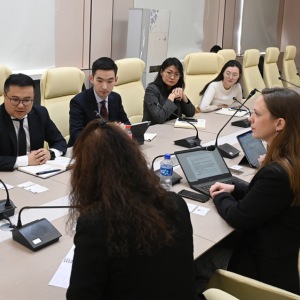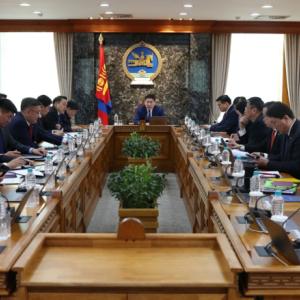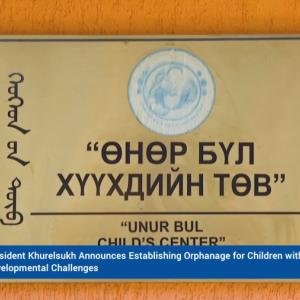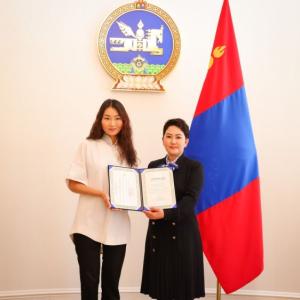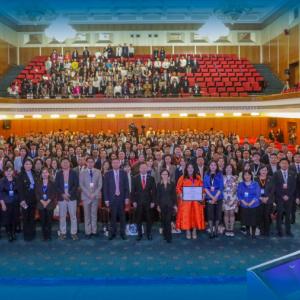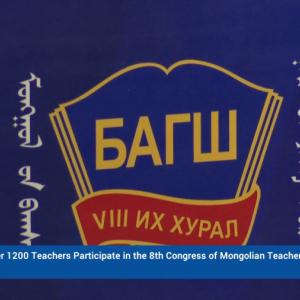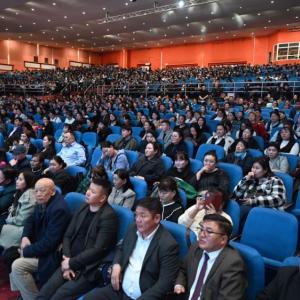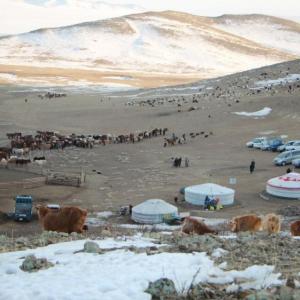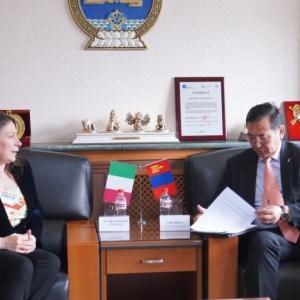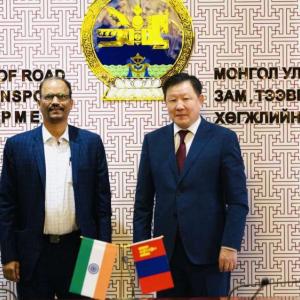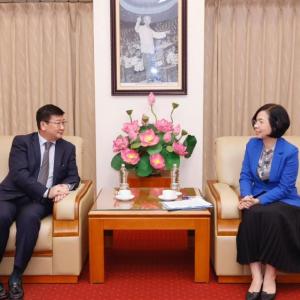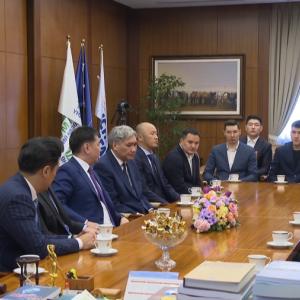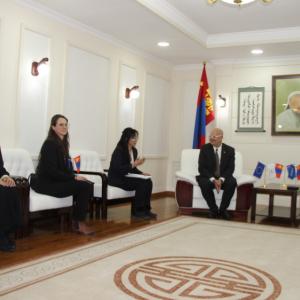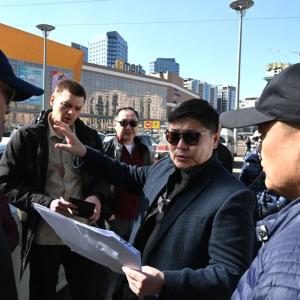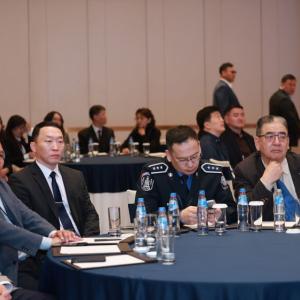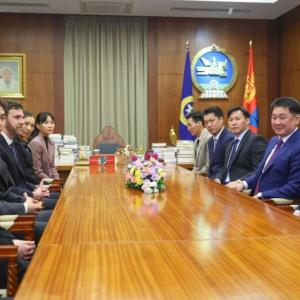Foreign Minister attends 73th session of ESCAP
Economy
Ulaanbaatar /MONTSAME/ The 73th Session of the Economic and Social Commission for Asia and the Pacific (ESCAP) of the United Nations is taking place in Bangkok, Thailand between May 15 and 19. Ts.Munkh-Orgil, Ministry of Foreign Affairs of Mongolia is paying a working visit in Bangkok, Thailand to attend the session as a panelist. The session is being held under the theme “Regional cooperation for sustainable energy” with an attendance of 45 members of ESCAP and delegates of other UN agencies.
Within the framework of his visit, Foreign Minister Ts.Munkh Orgil met with Shamshad Akhtar, the Executive Secretary of ESCAP, to exchange views on cooperation and current issues on May 17.
Foreign Minister Ts.Munkh-Orgil noted the active cooperation between Mongolia and ESCAP on trade, investment, environment, energy, transportation, statistics, poverty reduction and protection of the rights of landlocked developing countries and highlighted the importance of ESCAP’s aid in empowering national labor force, adapting regional practices, joining regional integrations and contributing to the regional efforts of sustained development.
The Foreign Minister also highlighted ESCAP’s support in establishing AH3 route created under the government level agreement of Mongolia, Russia and China on using Asian Highway network for transport in December 2016, which helped implementing trilateral initiatives of economic cooperation.

Ms. Shamshad Akhtar noted her expectation towards the upcoming conference that is expected to take place in Ulaanbaatar within the framework of the implementation of latter agreement this year and expressed her intention in supporting Asian Ministerial Conference on Disaster Risk Reduction 2018 to be held in Ulaanbaatar. Furthermore, Ms. Shamshad Akhtar highlighted the active cooperation of over 50 years between Mongolia and ESCAP and expressed her gratitude towards Mongolia’s support in the “Agreement on facilitation of cross-border paperless trade in the Asia-Pacific region”.
Within the framework of his visit, Foreign Minister Ts.Munkh Orgil met with Shamshad Akhtar, the Executive Secretary of ESCAP, to exchange views on cooperation and current issues on May 17.
Foreign Minister Ts.Munkh-Orgil noted the active cooperation between Mongolia and ESCAP on trade, investment, environment, energy, transportation, statistics, poverty reduction and protection of the rights of landlocked developing countries and highlighted the importance of ESCAP’s aid in empowering national labor force, adapting regional practices, joining regional integrations and contributing to the regional efforts of sustained development.
The Foreign Minister also highlighted ESCAP’s support in establishing AH3 route created under the government level agreement of Mongolia, Russia and China on using Asian Highway network for transport in December 2016, which helped implementing trilateral initiatives of economic cooperation.

Ms. Shamshad Akhtar noted her expectation towards the upcoming conference that is expected to take place in Ulaanbaatar within the framework of the implementation of latter agreement this year and expressed her intention in supporting Asian Ministerial Conference on Disaster Risk Reduction 2018 to be held in Ulaanbaatar. Furthermore, Ms. Shamshad Akhtar highlighted the active cooperation of over 50 years between Mongolia and ESCAP and expressed her gratitude towards Mongolia’s support in the “Agreement on facilitation of cross-border paperless trade in the Asia-Pacific region”.
B.Tugsbilig

 Ulaanbaatar
Ulaanbaatar











